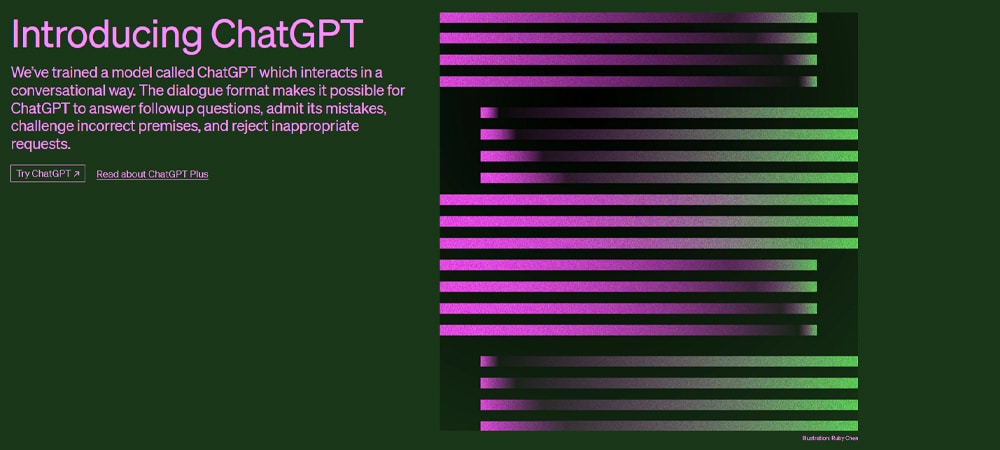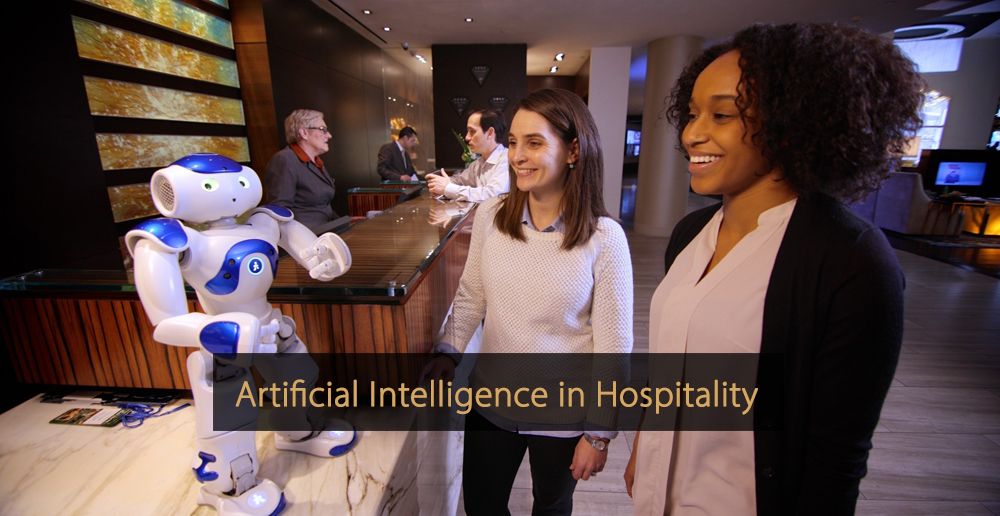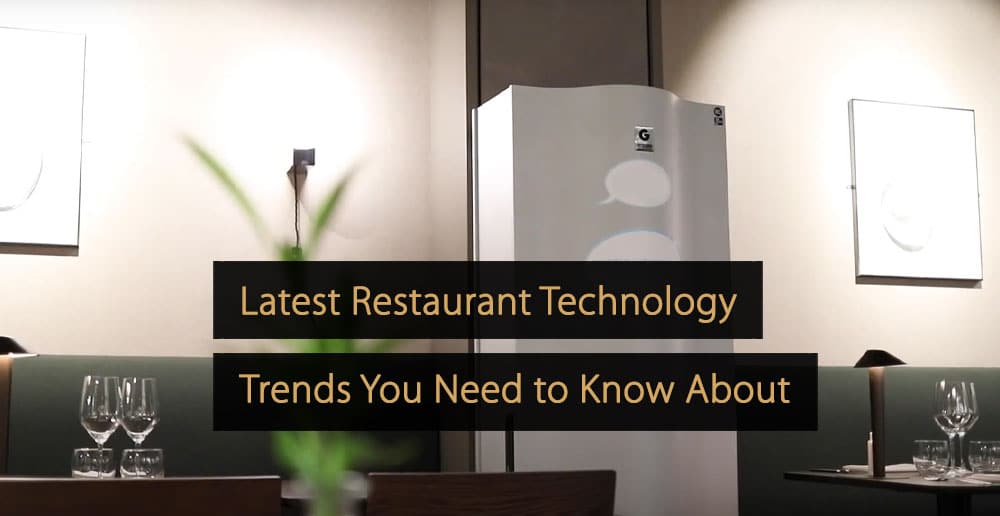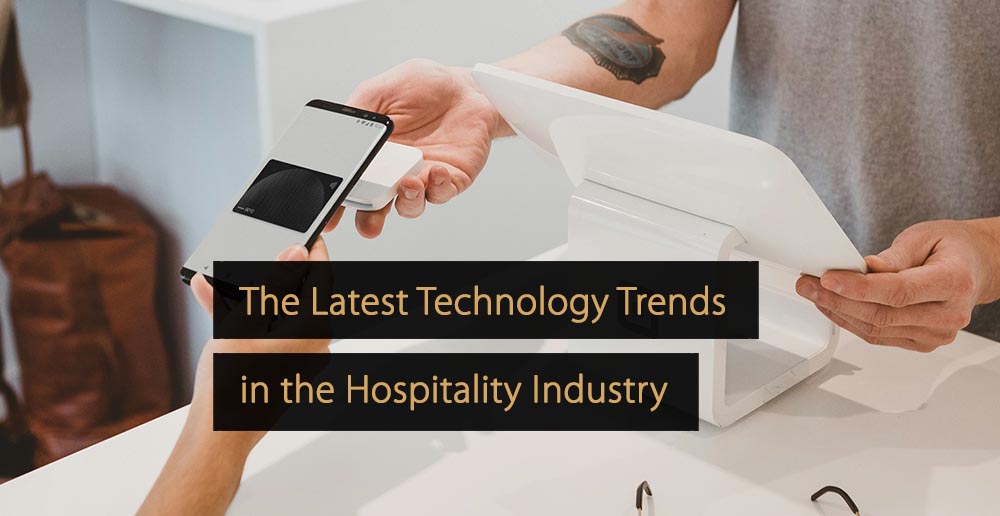ChatGPT hospitality applications are set to skyrocket in the near future. The sophisticated AI chatbot has found its way into various applications thanks to its ability to process questions and provide answers in natural language, similar to human communication. In this article, you’ll learn more about ChatGPT and its utility in the hospitality industry.
Table of Contents:
- What Is the Hospitality Industry?
- What Is ChatGPT?
- Is ChatGPT Free to Use?
- Can ChatGPT Be Useful to Companies?
- 5 Benefits of Using ChatGPT in the Hospitality Industry
- 7 Ways the Hospitality Industry Can Use ChatGPT
- Deep-Dive Into Restaurant Technology Trends
- Broader Latest Hospitality Technology Overview
What Is the Hospitality Industry?
To understand ChatGPT hospitality applications, you must understand the hospitality industry. The hospitality industry covers a broad range of different enterprises. When people are away from home, whether for work, leisure, business, or education, they need the services of the hospitality industry.
The clerk stepping out for lunch, the vacationing family who books a cottage on the lake, the business that holds a convention — all of these people and groups require one or more types of hospitality. The food and beverages sector includes restaurants, cafés, workplace canteens, bars, coffee shops, and more. Then there’s the recreation sector, which includes everything from gyms to golf courses.
The travel and tourism sector provides transport and other services to those on the move, both while traveling and at their destinations. Finally, the accommodation sector includes hotels, motels, vacation apartments, and more. Read “Hospitality Industry: The No. 1 Hospitality Information Guide!” for a comprehensive overview.
What Is ChatGPT?
Understanding ChatGPT in hospitality sectors starts with understanding ChatGPT. You’ve probably used chatbots before — they’re often the first line of consumer support when you visit a company website. While useful, most AI chatbots are generally limited in functionality and scope.
They’re great for resolving straightforward inquiries within a narrow range of topics but can struggle with more complex questions outside their predetermined field. ChatGPT uses a new type of AI, generative AI, which takes prompts from users and generates new material from them. This can be images, video clips, or, in the case of ChatGPT, human-like text.
Image attribution: OpenAI
Is ChatGPT Free to Use?
ChatGPT-3 has been made free to use by its developers, OpenAI. You can access it by setting up a free account on Open AI’s website and logging in. If you wish, you can upgrade your account for a monthly fee.
This will give you faster responses, prevent service blackouts and provide unlimited access even during heavy use. As a subscriber, OpenAI also gives you priority access to new features as they’re rolled out. You can also purchase GPT-4, which provides more natural text and have fewer glitches than ChatGPT-3.
Video: What is GPT4 and How You Can Use OpenAI GPT 4
Can ChatGPT Be Useful to Companies?
ChatGPT’s hospitality industry relevance stems partly from its ability to produce text with a human feel. This allows it to handle common inquiries and interactions, such as greetings or directions in multiple languages. It can generate social media posts, saving time if you don’t have a social media team.
ChatGPT can also write software code for you. ChatGPT is often used for creative inspiration, for example, in the ad copy. ChatGPT can be used for research, but remember that it doesn’t always provide accurate information. ChatGPT needs to be fine-tuned and adjusted for a specific role for optimal utility.
Video: Chat GPT by Open AI: How to Use Chat GPT in Tourism & Hospitality Management
5 Benefits of Using ChatGPT in the Hospitality Industry
Here are some of the main benefits of deploying ChatGPT in hospitality contexts.
Increased Customer Satisfaction
By allowing ChatGPT to handle some customer interactions, companies can reduce waiting times and provide more personalized communication. This helps customers to feel more valued by the company. Because ChatGPT is multilingual, it can field customer queries in many widely spoken languages.
It’s available all day, every day, meaning that nobody has to wait for a response. The tool can also be programmed to identify complex issues and refer them to human staff members for resolution. ChatGPT can give customers a sense of appreciation by avoiding delays and delivering consistent service.
Cost Reduction
In the hospitality industry, many queries from customers are routine. By deploying ChatGPT to field these queries, a business can remove a lot of pressure from its customer service agents and free up their time to handle more complicated or delicate interactions. By streamlining human resources in this way, ChatGPT can reduce costs.
Lead generation and content marketing can also be automated for greater efficiency. Using ChatGPT can lighten workloads for existing staff, reduce the need for new hires, and deliver concomitant reductions in infrastructure costs. Because it’s possible to implement ChatGPT remotely, the need for office space and equipment is reduced.
Improve SEO Rankings
It is possible to use ChatGPT to improve your search engine optimization (SEO) rankings. Search engines, especially Google, rate sites with higher volumes of fresh content more highly. By making it easier to create content, ChatGPT can facilitate this process. ChatGPT can also help to research keywords and analyze text for keyword ratios.
It’s important not to rely completely on ChatGPT, as it sometimes produces misleading information and may deliver lower-quality text, which doesn’t perform as well in search rankings. Used as a tool to streamline content creation in conjunction with human oversight, ChatGPT can yield greater efficiency when improving your SEO.
Data Analysis & Collection
When you interact with ChatGPT, all your conversations are stored. This means that your customers’ conversations with ChatGPT remain available for you to analyze. This treasure trove of information can be used to enhance your customers’ experience further.
It can also be employed in developing and improving your services, improving products, and devising new, more effective marketing strategies. The data can be processed and analyzed in real-time while the customer is chatting, further improving agility. By using ChatGPT in this way, businesses can improve customer satisfaction and increase retention and loyalty.
Multi-Language Communication
As you’ve already learned, ChatGPT can communicate fluently in multiple languages. This can benefit prospective customers who lack the language skills to communicate with businesses overseas. It reduces frustration and errors that come from trying to communicate in an unfamiliar language, helps the guest feel more welcome, as well as helping your business to offer the kind of personalized service that customers appreciate.
ChatGPT can also provide translation services for your staff and guests, making it easier to answer questions, address problems and provide services. Removing the language barrier can greatly enhance levels of customer satisfaction.
7 Ways the Hospitality Industry Can Use ChatGPT
You’re probably wondering how your business can use this new technology. In the following sections, you’ll discover seven ways to deploy ChatGPT.
Customer Service
Hotel businesses and other hospitality enterprises have used chatbots for customer service for many years. With the rise of ChatGPT, more and more hospitality businesses are adopting this technology. Because ChatGPT isn’t limited in the scope of its responses, it can assist customers much more effectively than earlier chatbots could.
Customers can ask a ChatGPT instance about their travel itinerary, ask for information about the local area, request services or raise any issues they have with products or services. ChatGPT also allows businesses to provide customer service around the clock.
Personalized Recommendations
ChatGPT can analyze a customer’s travel history and preferences to provide personalized travel & hospitality business recommendations. This can include suggesting destinations to visit, recommending restaurants or activities to try, or suggesting accommodations. Using ChatGPT’s language understanding and generation capabilities, hospitality companies can offer customized experiences tailored to a customer’s preferences, budget, and travel history. This can lead to increased customer satisfaction and loyalty.
Strategy & Planning
ChatGPT’s hospitality applications also include research and strategy development. Because it uses NLP (natural language processing), ChatGPT can rapidly analyze large volumes of data, gleaning important insights for strategic decision-making. One example might be keyword search queries.
These can be used to tailor strategies for hospitality businesses. Restaurant marketing, hotel marketing — all hospitality industry sectors can benefit from using ChatGPT in this way. Keyword analysis can help develop marketing content by identifying topics of specific interest to a business’ customers.
Marketing & Targeting
As well as providing analysis for marketing, ChatGPT can be used to create unique marketing materials and enhance your marketing endeavors. It can be used in content creation, producing materials closely targeted to specific audiences. Because it’s a chatbot, ChatGPT can also be deployed on social media platforms.
It can write posts and interact with followers. ChatGPT can offer recommendations and even help customers to tailor their perfect packages. Hotel owners, restauranteurs, and other business owners in the hospitality industry can use ChatGPT to craft email campaigns and even automate them.
Video: How To Use ChatGPT For Marketing Campaigns
Website SEO & Content
ChatGPT is widely used to produce web content. It can produce large volumes of text on any given subject in various languages. It can write blog posts, articles, landing pages — even whole e-books. This makes it very useful for businesses wanting to build their web presence rapidly.
This can be a great time-saver, especially for any business that doesn’t have a dedicated content marketing team. It can also save money by reducing the amount that needs to be spent on paying content creators. Human editors should check content produced by ChatGPT before publication.
Answering Reviews
Responding promptly to online reviews is important to maintaining a good reputation. It’s especially important for the hospitality industry, where customer relations are paramount. ChatGPT can play a valuable role here. It can analyze reviews and provide an appropriate response in real-time.
The review can craft a note thanking the reviewer if it is positive. If there’s a suggestion, it can be stored and analyzed. ChatGPT can respond or apologize when a review is critical, escalating the issue to human customer service agents when necessary.
Gather Creative Ideas
So far, you’ve been learning about the more practical applications of ChatGPT. It can also have other benefits as a creative tool. Many people find ChatGPT invaluable for helping them generate fresh ideas or look at things from a different perspective.
This can be very helpful in, for example, coming up with ideas for a new campaign, developing social media strategies, or finding ways to update your branding. By entering a simple prompt such as “suggest ten new ideas for social media posts” along with appropriate keywords, you will immediately have a list of ideas you can develop.
Deep-Dive Into Restaurant Technology Trends
After reading about ChatGPT in the hospitality industry, you might want to learn more about the latest technologies that are changing the restaurant industry. New developments, from the latest point-of-sale systems to software solutions that can help your kitchen run more efficiently, always come along.
Staying on top of new technology is an important part of being a restaurant owner or manager in today’s world. In “Latest Restaurant Technology Trends You Need to Know About,” you’ll discover how chatbots like ChatGPT change how restaurants interact with diners, how online ordering can maximize revenue, and more.
Broader Latest Hospitality Technology Overview
It’s not just restaurant owners who need to stay ahead of the technological curve. Any business in the hospitality industry needs to keep a close eye on the latest technologies. For any tech-savvy hotel owner, restaurateur, or investor, staying up to date with broader hospitality industry technologies to provide satisfactory service to their customers and innovate to stay ahead of their competition is beneficial.
In the article “The Latest Technology Trends in the Hospitality Industry”, you can find all the latest technology advancements for the industry and beyond.
ChatGPT Hospitality Guide FAQs
While there are some roles that only a human can fulfill, ChatGPT can automate many routine tasks. It can enhance customer service, gather valuable data, and help to streamline all your hotel and restaurant marketing. Adopting this new technology can improve day-to-day operations and enhance customer relations.
Want to Learn More About ChatGPT in Related Industries?
In the following articles, you can learn more about the use of ChatGPT in related industries.
- ChatGPT Hotel Guide: Learn How Hotels Can Benefit from ChatGPT!
- ChatGPT Tourism Guide: How the Tourism Industry Can Benefit!
- ChatGPT Travel Guide: How the Travel Industry Can Benefit!
More Tips to Grow Your Business
Revfine.com is the leading knowledge platform for the hospitality and travel industry. Professionals use our insights, strategies, and actionable tips to get inspired, optimize revenue, innovate processes, and improve customer experience.Explore expert advice on management, marketing, revenue management, operations, software, and technology in our dedicated Hotel, Hospitality, and Travel & Tourism categories.
This article is written by:
Hi, I am Martijn Barten, founder of Revfine.com. With 20 years of experience in the hospitality industry, I specialize in optimizing revenue by combining revenue management with marketing strategies. I have successfully developed, implemented, and managed revenue management and marketing strategies for individual properties and multi-property portfolios.










Leave A Comment